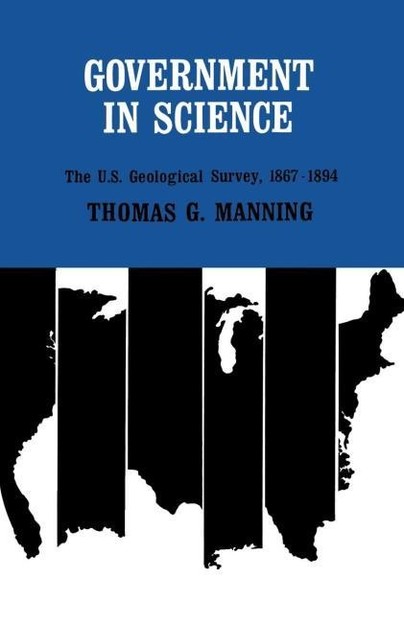Government in Science (Paperback)
The U.S. Geological Survey, 1867-1894
Imprint: University Press of Kentucky
Pages: 272
Illustrations: Illus
ISBN: 9780813153278
Published: 15th July 2014
Script Academic & Professional
Pages: 272
Illustrations: Illus
ISBN: 9780813153278
Published: 15th July 2014
Script Academic & Professional
This book will be reprinted and your order will be released in due course.
You'll be £23.00 closer to your next £10.00 credit when you purchase Government in Science. What's this?
+£4.99 UK Delivery or free UK delivery if order is over £40
(click here for international delivery rates)
Need a currency converter? Check XE.com for live rates
(click here for international delivery rates)
Need a currency converter? Check XE.com for live rates
From its very inception in 1879 until the twentieth century, the U.S. Geological Survey was embroiled in congressional politics. These early years, Thomas G. Manning shows, heralded the complex relations of contemporary science and government.
Born out of rivalry between several scientific parties, the Geological Survey was founded primarily for the advancement of mining west of the Mississippi. Its scope was soon broadened, however, and the Survey became national in character. The concept of government science was challenged by the conservative Cleveland Democrats, but its proponents succeeded in establishing the Survey as a permanent bureau in 1886.
Manning traces in detail the careers of the Survey's first two directors, Clarence King and John Wesley Powell, and adds new dimensions and interpretations to their public lives. King sought to make the Survey a center for geological theory as well as practical studies. By exceeding the narrow limits of the original appropriations bill, King became vulnerable to the attacks of economy-minded congressmen and was dismissed. Powell proved a more apt political manipulator and his plans for a nationwide topographical map were salable to the public, but his unpopular western land policies almost cost him his position. Near the end of the nineteenth century, under Powell's successor, C. D. Walcott, the Survey was finally able to divorce itself from active politics and its policies were developed in a more fruitful setting.
Other titles in University Press of Kentucky...















